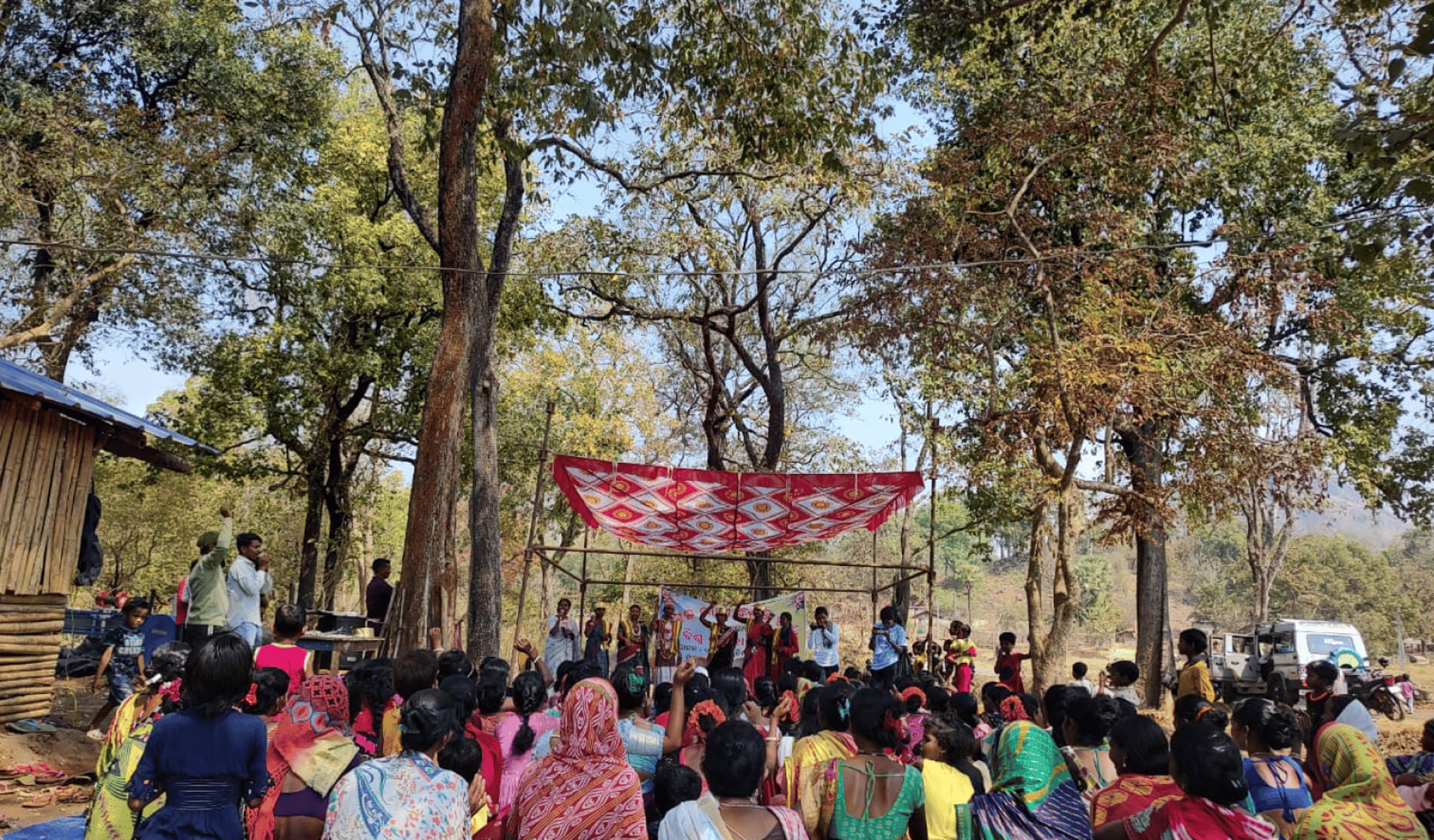
16.03.24
Voices of Tribal Women: Aspirations and Life Lessons Shared at Jungle Rani’s Bichar Charcha Forum
‘I cannot read because I never went to school. How could I go when there was no school? My parents married me off at 15, and I moved to live in a new place. My husband used to travel to far-off places, and I had to manage the house on my own without any knowledge of how to handle things—how to manage money, how to buy essentials from the market, and how to collect payments from the vendor who took Mahua seeds or rice from my farm. It was quite a struggle for me. That was when I decided that if I have a daughter, I will send her to school for a good education, so she does not face the same struggles I endured.’
These words, shared by Sambari Sisa, a Bonda tribal women leader, resonated deeply with hundreds of women who gathered at the Bichar Kendra—a forum for women from tribal communities to come together and share their life experiences and aspirations. It was set up by the Maha Gram Sabha (MGS) of Kalimela, a community-based organisation comprising local forest-dependent communities in Malkangiri, Odisha.
The Bichar Kendra became a reality after volunteers from Jungle Rani Reporters and Bado Didi Union, along with the members of the Initiative on the Forest Economy (IoFE) team, held numerous meetings and engaged in weeks-long discussions with women members, all united by the common goal of creating a platform where women could share their experiences.
For the first time, 200 women from 20 villages—belonging to various tribal groups, such as Bonda, Koya, and Desia, and facing barriers in accessing even primary education and healthcare facilities—came together to discuss their rights to forests and livelihoods, their aspirations for their children's education, and the actions they could take to combat institutional and domestic violence.
Taking the opportunity, members of our team and the Gram Sabha of Jakalkundi, Kalimela, highlighted the importance of industrial marketing of forest products through the establishment of a jungle producer company (PC) and securing tenure rights guaranteed under the Scheduled Tribes and Other Traditional Forest Dwellers (Recognition of Forest Rights) Act, 2006. They also shared examples of PCs and their role in promoting women's livelihoods.
